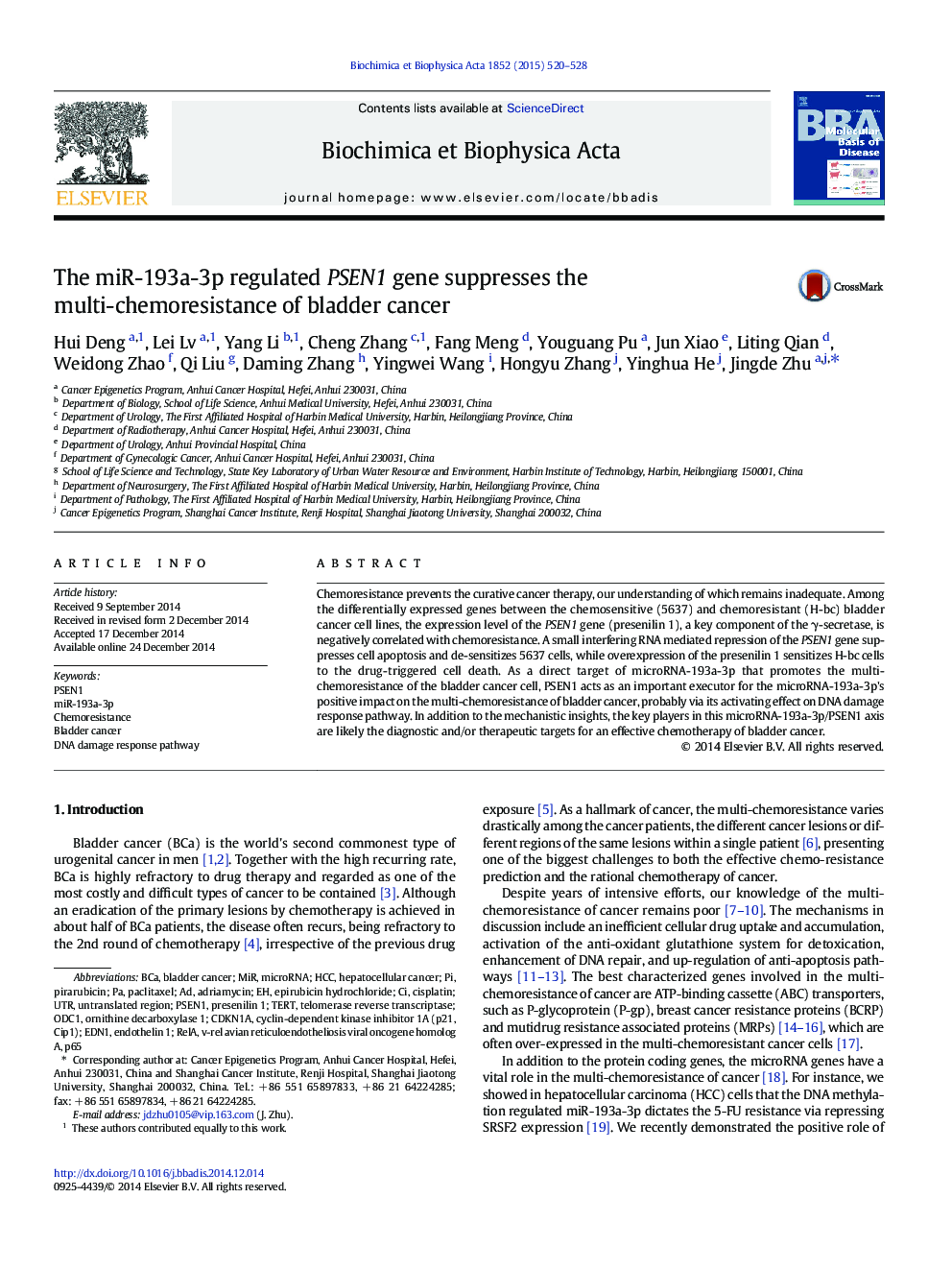| Article ID | Journal | Published Year | Pages | File Type |
|---|---|---|---|---|
| 1904661 | Biochimica et Biophysica Acta (BBA) - Molecular Basis of Disease | 2015 | 9 Pages |
•PSEN1 represses the multi-chemoresistance in BCa.•PSEN1 is a direct target of miR-193a-3p.•PSEN1 activates DNA damage response pathway.
Chemoresistance prevents the curative cancer therapy, our understanding of which remains inadequate. Among the differentially expressed genes between the chemosensitive (5637) and chemoresistant (H-bc) bladder cancer cell lines, the expression level of the PSEN1 gene (presenilin 1), a key component of the γ-secretase, is negatively correlated with chemoresistance. A small interfering RNA mediated repression of the PSEN1 gene suppresses cell apoptosis and de-sensitizes 5637 cells, while overexpression of the presenilin 1 sensitizes H-bc cells to the drug-triggered cell death. As a direct target of microRNA-193a-3p that promotes the multi-chemoresistance of the bladder cancer cell, PSEN1 acts as an important executor for the microRNA-193a-3p's positive impact on the multi-chemoresistance of bladder cancer, probably via its activating effect on DNA damage response pathway. In addition to the mechanistic insights, the key players in this microRNA-193a-3p/PSEN1 axis are likely the diagnostic and/or therapeutic targets for an effective chemotherapy of bladder cancer.
